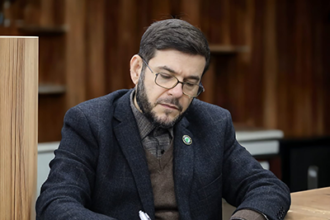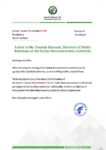Modernists: Role and Importance

Introduction:
Modern Political Ideas: These are a set of concepts and orientations that emerged during the modern era, aiming to reshape political and societal systems. These ideas are characterized by focusing on:
- Rationalism: Relying on reason and logic as tools to understand and organize the world, rather than depending on traditions and customs.
- Individualism: Emphasizing individual rights and freedoms, while reducing the power of the state and traditional institutions.
- Progress: Believing that history moves forward and that societies are constantly evolving toward a better state.
- Democracy: Advocating for the right of the people to choose their leaders and participate in decision-making.
- Nationalism: Promoting national identity and working towards uniting people of a shared origin.
- Secularism: Supporting the separation of religion from the state and prioritizing civil laws.
Among the key features of political modernism are:
- Encouraging change and innovation in all fields, leading to societal transformation.
- Advocating for equality among all members of society.
- Social justice, striving for fairness and equitable wealth distribution.
- Emphasizing the importance of individual and political freedoms.
Examples of Modern Political Ideas:
- The French and American Revolutions: Both laid the foundation for democracy and human rights.
- Socialism and Communism: These aim to achieve social justice and wealth distribution.
- Liberalism: Stresses the importance of individual freedoms and a free-market economy.
- Arab Nationalism: Seeks to unite the Arab peoples in our region.
It’s important to note that political modernism is not a single theory but a collection of diverse ideas and theories that have evolved and changed over time, influenced by historical and social contexts. Political modernism has also faced criticism from many philosophers and thinkers who argue that it has led to social and political problems.
Types and Orientations of Modernists:
Modernist orientations or parties take various forms and constantly evolve, depending on differing interpretations among modernists. Generally, they can be classified into the following categories:
- Liberal Parties: Advocating for individual freedom, a free economy, rule of law, and reducing state interference in personal and economic matters.
- Democratic Socialist Parties: Combining the values of liberal democracy and social justice, supporting a mixed economy with a larger state role in providing public services.
- Green Parties: Focusing on environmental issues, sustainability, renewable energy, and policies that protect the environment.
- Nationalist Parties: Emphasizing national identity and cultural heritage, supporting an independent foreign policy.
- Progressive Parties: Seeking social change and advancement, supporting minority and women’s rights, and opposing discrimination.
Several factors influence the classification of these modernist parties, such as:
- Ideology: The principles and values individuals or entities believe in.
- Political Programs: The policies the party proposes to achieve its goals.
- Organizational Structure: How the party is organized and makes decisions.
- Target Audience: The social group the party aims to represent.
Examples of Modernist Parties:
- Liberal Parties: Such as the Democratic Party in the United States and the Conservative Party in the United Kingdom.
- Democratic Socialist Parties: Such as the Social Democratic Party in Germany and the Labour Party in the United Kingdom.
- Green Parties: Such as the Green Party in Germany and the Green Party in France.
- Nationalist Parties: Such as the Law and Justice Party in Poland and the Nationalist Movement Party in Turkey.
- Progressive Parties: Such as Podemos in Spain and the Five Star Movement in Italy.
This classification is not absolute; a party may belong to more than one category or change its classification over time. Party diversity enriches democracy and allows citizens to choose parties that better represent them.
In Syria, modernists lack entities and parties with which they can interact due to the authoritarian state before the 2011 Syrian revolution and the subsequent fragmentation, extremism, confrontational orientations, and external interventions. The efforts of Syrian modernists to establish democratic or secular forces still need maturity, support, and consolidation.
Role and Importance:
Modernist parties play a crucial role in building the state, the nation, and civilization for several reasons:
- Developing Political Programs: Modernist parties contribute to comprehensive political programs aiming to develop various aspects of life, such as the economy, education, health, and infrastructure.
- Mobilizing Public Opinion: These parties work to mobilize public opinion on important issues, raising awareness of citizens’ rights and responsibilities.
- Participating in Decision-Making: By representing the interests of broad segments of society.
- Ensuring Peaceful Power Transition: Modernist parties reinforce the principle of peaceful power transition and enhance political stability.
- Fighting Corruption: They strive to combat corruption and promote transparency and accountability.
- Building Civil Society: By supporting civil society building and encouraging community participation.
- Preserving National Identity: Strengthening the sense of belonging to the homeland.
- Modernizing Society: Adopting new ideas and modern technologies to advance society.
In summary, modernist parties are a driving force for change and progress, playing a vital role in building a strong and advanced state.
However, the success of modernist parties depends on several factors:
- Transparency and Integrity: Respecting the principles of democracy and justice.
- Representation of All Segments of Society: Considering the interests of everyone.
- Adaptability to Rapid Changes in the World: Adopting new ideas and future visions without becoming rigid.
Challenges Facing Syrian Modernists:
Syrian modernists played a key role in shaping the political and cultural landscape throughout history. Their contributions include:
- Establishing the modern Syrian state.
- Promoting culture, knowledge, and education.
- Strengthening civil society and supporting public freedoms.
- Defending Syria’s independence and confronting colonialism.
Challenges:
- Traditional Forces: Strong resistance from traditional and conservative forces.
- External Interventions: Efforts by foreign powers to hinder progress.
- Internal Conflicts: Divisions among political factions, weakening modernist influence.
- Lack of Genuine Democracy: One-man rule hindered the role of political parties and civil organizations.
Conclusion:
Despite challenges, modernists in Syria continue to play an important role in shaping the country’s future. They represent a driving force for change and modernization, aiming to build a democratic and modern state that respects human rights.
Dr. Zaher Ihssan Baadarani
Presidency office
Article
Syrian Future Movement (SFM)






